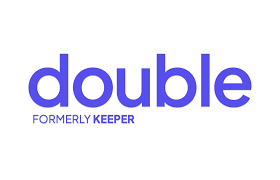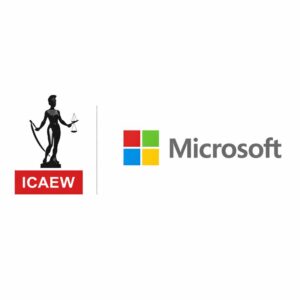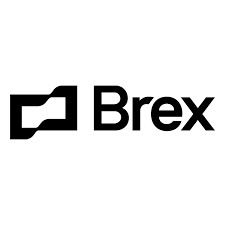AI Bookkeeping Tools: Why Accounting Firms Are Switching to Double
Formerly known as Keeper, this start-up has rebranded as Double to offer a comprehensive platform for modern accounting.

The accounting profession is haemorrhaging talent at an unprecedented rate. Between 2019 and 2024, some 340,000 accountants left the profession in the United States alone, whilst accounting graduates fell 6.6 per cent in the 2023-2024 academic year. For firms already stretched thin, the answer increasingly lies not in hiring but in automation. AI bookkeeping is taking the profession by storm and helping to reduce the amount of manual work required for industry professionals.
At the centre of this shift sits Double, a San Francisco-based software company that until recently operated under the name Keeper. Its rebrand, announced in late 2025, signals more than a marketing refresh. It represents a bet that artificial intelligence can do for bookkeeping what cloud computing did for data storage: make it faster, cheaper, and accessible to firms that previously lacked the resources to compete.
The premise is deceptively simple. Instead of accountants spending hours manually reviewing transactions, categorising expenses, and chasing missing receipts, algorithms trained on millions of ledger entries can flag errors, suggest corrections, and automate repetitive tasks. What once required late nights and endless spreadsheets can now be completed in a fraction of the time, freeing accountants to focus on analysis and advisory work rather than data entry.
Founded in 2020 by Ben Stein and Kenny Song, Double began as a bookkeeping workflow platform designed to make the month-end close faster and less error-prone. The timing proved prescient. The pandemic accelerated remote work across professional services, exposing the fragility of paper-based processes. Cloud accounting platforms like QuickBooks Online and Xero had already laid the groundwork by moving ledgers online. What was missing was intelligent middleware: software that could sit atop these systems and make sense of the chaos within.
Double’s core offering does precisely that. Its machine-learning engine connects directly to general ledgers, scanning for anomalies such as duplicate payments, miscoded transactions, or missing documentation. When it identifies potential errors, it suggests fixes that accountants can review and apply in bulk. Changes sync automatically back to the ledger, eliminating manual re-entry. This is AI bookkeeping in practice: not replacing accountants, but accelerating the mechanical work that consumes their time.
Yet efficiency gains alone do not explain Double’s traction. The platform’s real differentiator lies in how it restructures the relationship between accountants and their clients. Its integrated portal consolidates all communication, document requests, and report sharing in one interface. Rather than chasing receipts through endless email threads, accountants can send queries directly through the system, with responses tracked and timestamped. In an industry where trust is paramount, these seemingly small improvements matter enormously.
The decision to rebrand from Keeper to Double reflects the company’s expanding ambitions. The original name often caused confusion with unrelated software in other sectors. More importantly, it anchored the business to bookkeeping when the founders envisioned something broader: a full practice-management platform encompassing reporting, workflow coordination, and business intelligence. The new name nods to the company’s promise of doubling efficiency whilst allowing room for that wider vision.
It also positions Double within a crowded and increasingly competitive market. Rivals include established players like Dext, which specialises in receipt capture, as well as native automation features being built into QuickBooks and Xero themselves. Yet Double has carved out a distinct niche by focusing squarely on the needs of accounting firms rather than individual business owners. Its pricing model charges per connected client rather than per user seat, aligning the software’s economics with how bookkeeping practices actually operate. In the emerging AI bookkeeping sector, this firm-first approach has proven differentiating.
The broader context is an accounting profession under extraordinary strain. Some 83 per cent of senior finance leaders now report an accounting talent shortage, up from 70 per cent in 2022. Survey data indicates that 68 per cent of accounting professionals are experiencing burnout, whilst one-third of accountants admit to making at least a few financial errors every week due to capacity constraints. Between July 2023 and June 2024, nearly 640 US-listed companies reported material weaknesses tied to the accounting talent shortage.
Fee compression driven by increased competition means firms must do more with less. Meanwhile, clients increasingly expect real-time visibility into their finances, not month-end reports delivered weeks after the fact. Automation has shifted from luxury to necessity. Double’s internal data suggests firms can reduce close times by up to 50 per cent after full implementation, pointing to genuine productivity gains that can inform pricing strategies, capacity planning, and talent deployment.
There is a generational dimension as well. Some 87 per cent of hiring managers for finance and accounting teams report difficulty locating skilled talent. Younger accountants, raised on smartphones and cloud software, expect digital tools in their work. Firms that fail to modernise risk losing talent to more tech-savvy competitors. Automation becomes not merely a profit lever but a retention strategy.
Yet resistance persists. Many accountants remain wary of AI-driven systems, concerned about compliance risks or the loss of professional judgment. Double’s team counters that automation augments rather than replaces human expertise. The software highlights issues; accountants make the final calls. It is a familiar refrain in discussions about AI across professional services, though one not always borne out in practice as systems grow more sophisticated.
The AI in bookkeeping market is expected to grow at a compound annual growth rate of 44.56 per cent, reaching $77.23 billion in 2030 from $12.23 billion in 2025. More broadly, the AI in accounting market is projected to reach $7.52 billion in 2025 and grow at a CAGR of 46.20 per cent to reach $50.29 billion by 2030. North America remains the largest market, but adoption is accelerating in Europe and Asia as cloud infrastructure matures.
Double is also a Y Combinator graduate, and has attracted interest from venture and private equity firms seeking exposure to vertical software. Its founders have stated publicly their intention to expand beyond bookkeeping into full practice management, offering tools for reporting, task tracking, and team performance. For Double, international expansion presents both opportunity and challenge. Localising for regional accounting standards, tax regimes, and data protection laws will be crucial.
The broader story transcends any single company. Accountancy, long viewed as a bastion of traditional methods, is quietly embracing automation at a pace few anticipated. The profession’s reputation for caution may have delayed adoption, but once the cost-benefit calculus became clear, momentum built quickly. What emerges is a sector in transition, where the line between data processing and strategic insight is blurring.
For now, Double stands near the forefront of this transformation, a case study in how software can reshape even the most established professions. As AI bookkeeping becomes standard rather than novel, firms face a stark choice: embrace the technology or watch their more efficient competitors pull ahead. The only question is how quickly the rest of the industry will follow.





